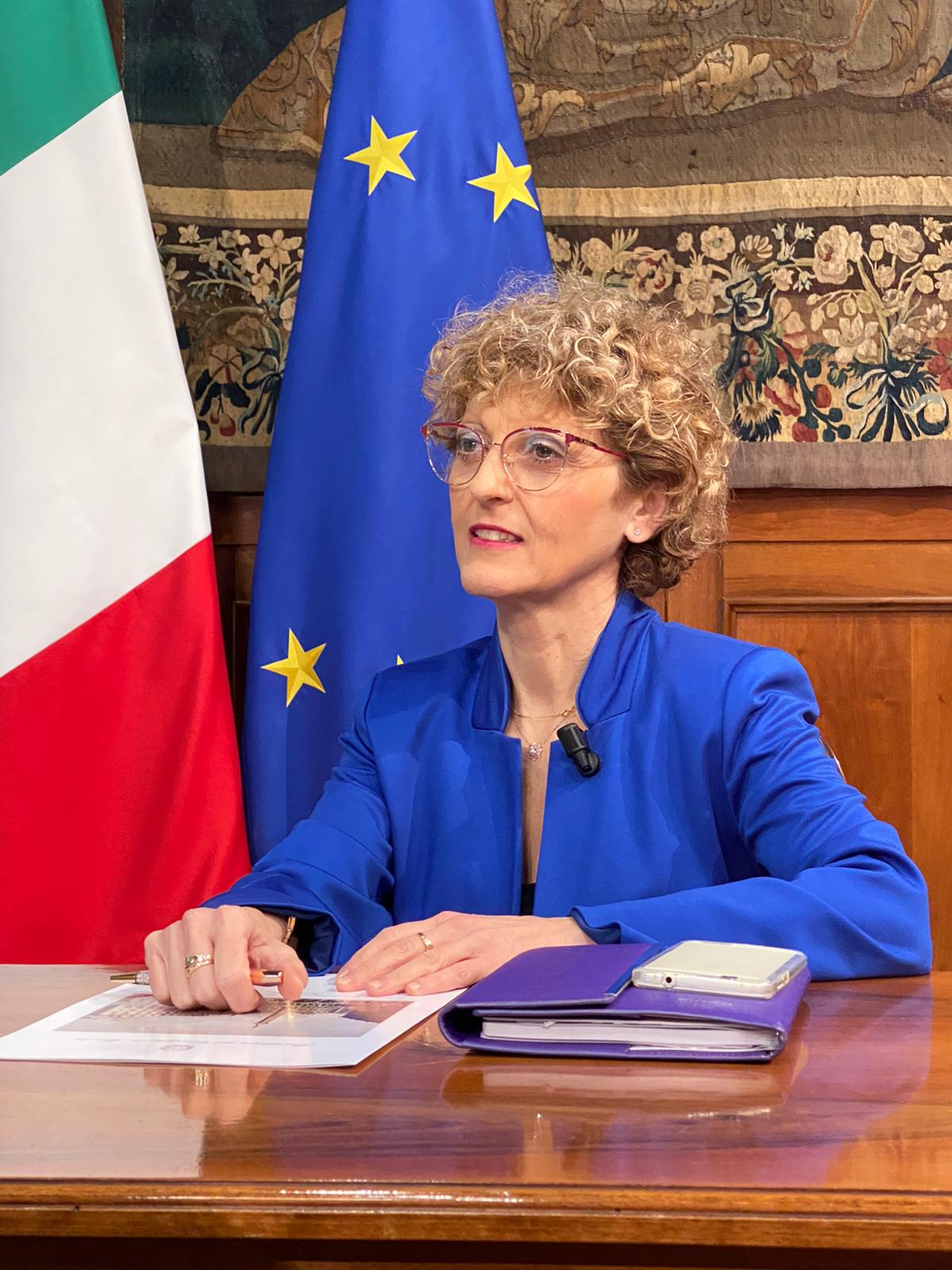1 July 2020
Interview with... Filomena Maggino Advisor of the Italian Prime Minister and coordinator of the Steering Committee “Benessere Italia”
Advisor of the Italian Prime Minister and coordinator of the Steering Committee "Benessere Italia
[Cleared n°5 - anno XVII - maggio 2020]
Advisor of the Italian Prime Minister and coordinator of the Steering Committee "Benessere Italia
[Cleared n°5 - anno XVII - maggio 2020]

Dr. Maggino, PM Conte chose you to lead the Steering Committee "Benessere Italia" (Wellbeing Italy): could you illustrate the main projects you are carrying out?
The Steering Committee "Benessere Italia" provides technical-scientific support to the Prime Minister on themes of well-being policies and the assessment of quality of life of our citizens. It has the assignment of monitoring and coordinating the specific activities of the Ministries, assisting Regions, Autonomous Provinces and local Institutions in promoting good practices across the territory, and developing precise methodologies and guidelines for the detection and measurement of the indicators of quality of life. In fact, the activities of "Benessere Italia" – a project PM Conte strongly backed – aims at spreading the inclination towards well-being of leading national and international stakeholders not only within the public administration but also within the sectors of business, research and services. At this stage, we have drawn on the programmatic guidelines that, with the Prime Minister, we presented on 20 January, during the first public event of the Steering Committee "Benessere Italia" at CNEL (the Italian National Council for the Economy and Labour). Together with representatives of the Ministers, and in collaboration with several stakeholders, we have established the "Officine", i.e., working groups within the Steering Committee where numerous different groups can discuss issues of national interest. Among others: mobility and territorial cohesion, nutrition, and technological innovation.
In these unusual and difficult times for Italy and the entire world, businesses are rightly trying to recover and make up for lost ground. However, some of them have expressed their intention to waive, entirely or partly, the sustainability goals set for in the UN’s SDGs and in the Green New Deal. What is your view on that?
One of the responsibilities of the Steering Committee is to support, develop and coordinate the Italian Government’s policies and initiatives for Equitable and Sustainable Well-Being (BES – Benessere Equo e Sostenibile) and for the implementation of the National Strategy for sustainable development (SNSvS – Strategia Nazionale per lo Sviluppo Sostenibile), as settled by Italy’s commitment with the UN’s 2030 Agenda for Sustainable Development. Health, education, employment and work-life balance, economic well-being, social relations – which is a key resource –, trust in the political class and the institutions, safety, landscape and cultural heritage, the quality of the environment, research as the basis of social and economic development: these are the areas for which more than 130 indicators have been identified and then used by ISTAT (the Italian National Institute of Statistics) to measure our Country’s equitable and sustainable well-being. In fact, the GDP alone cannot provide a comprehensive view of the overall progress of a society, including also its social and environmental aspects. Regarding this, let me suggest listening to Robert Kennedy’s speech during a campaign at a university in 1968, that could well have started off the momentum to him becoming President of the United States of America. In that speech, he made clear that the GDP could measure everything but what makes life worth living: i.e., well-being.
In one of the most recent European councils, the Italian Prime Minister has stated that Europe must become a world leader in ecological sustainability. In your opinion, does Italy have the right credentials to play a major role in this process?
I think we can certainly be main players on an international level. We have the right tools and competencies for that. Let me mention once again that the OECD has recognized the Steering Committee "Benessere Italia" as a best practice in the governance of sustainable development. This is a significant achievement for Italy in terms of potential administrative modernisation and improvement of the public sector. This agreement will foster the synergy among the different sectors of economic, social and environmental policies, and help bring together the objectives of our national policy with the goals established on an international level.
The air traffic sector is coping with one of the most challenging periods of its history, touching points of decrease of 95% in April 2020. Taking into account the general call to airlines to reduce CO 2 emissions, how do you envisage the future of air transport?
The air transport sector is facing an unprecedented challenge. We can only wonder whether the levels of traffic could return to their pre-emergency status. It will take a long time for sure. And this span might be used to rethink resources, structures, and the whole machine with an eye on sustainability and respect for the environment, the individuals, and the workers alike. It is both a technological and a cultural challenge. I would like to launch a reflection with all actors of this sector in order to outline a common vision.


